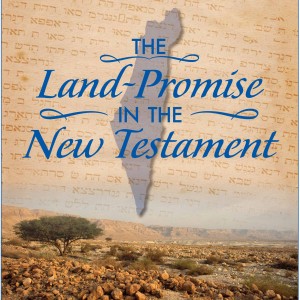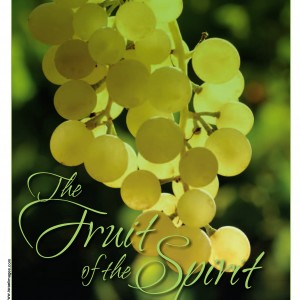

The covenantal land-promise of the Older Testament (OT)—God’s promise of the land of Israel to Abraham—continues in the Newer Testament (NT), where it is implicit, if not explicit. This is self-evident; the burden of proof is on the critic who feels the need to delegitimize Israel’s claim to the land. {image_2}
Continue Reading »
In this teaching letter, I would like to take a look at the fruit of the Spirit from a Hebraic point of view. Most of us read our Bibles with our own cultural understandings overlaid on the Scripture. {image_2}We are influenced by our culture, language, experiences, and nearly 2,000 years of Christian theology and tradition. I wonder, what did these words mean to the Apostle Paul?
Continue Reading »
Ruth, one of the most beloved books in all of Scripture, stands out as the story of a remarkable Gentile woman whose love and loyalty elevate her to the esteemed position of “mother of royalty” in Israel’s Messianic lineage. {image_2}Jewish history tells us it is the account of a young maiden, of questionable heritage herself, whose virtue and kindness compel her to cast her lot with her widowed mother-in-law, leave behind her own claim to royalty, and embrace a God whose people were the longtime enemies of the kingdom her father ruled.
Continue Reading »
{image_1}Intimacy—we all want it; we all desperately need it. Some of us, however, have been so hurt in life that we fear it, or we have been so denied it that we don’t know how to pursue it. Yet, it is something we must have to survive. People commit suicide because they either lose it or can’t find it. The good news is God has the recipe for it. It’s His desire that we have it with Himself and with man.
Continue Reading »
{image_1} Often in my travels, I encounter churches and Christians who talk about being “New Testament” believers. At first this sounds wonderful, but upon further reflection, this phrase can be a repudiation of the Hebrew Scriptures, which Christians call the Old Testament and Jews call the Tanach. Many who view the Hebrew Scriptures as no longer valid use allegory to explain Scriptures, ascribing a meaning other than the plain one. As you can imagine, this can significantly change the interpretation.
Continue Reading »
Perhaps the saddest words in the Bible are found in Isaiah 59:16, “He [the Lord] saw that there was no man, and wondered that there was no intercessor…” Ezekiel recorded the same. {image_1}After God enumerated the sins the Israelites had committed, He was still willing to be merciful, but there was no intercessor: “I sought for a man among them who would make a wall, and stand in the gap before Me on behalf of the land, that I should not destroy it; but I found no one…” (22:30–31). “No one”—what a heartbreaking word!
Continue Reading »{image_1}2011 has been a year when the world has experienced great difficulties in many spheres—from natural disasters, to wars, to financial instability. World leaders are clearly confused in this time of instability, and even chaos, around the world. Natural disasters alone have been devastating.
Continue Reading »
There is something very powerful about an invitation. Knowing that someone cares enough about us as individuals to desire our presence and, further, to seek us out and request our presence, can have a profound effect on how we view ourselves. As a matter of fact, there are few things that are as affirming as receiving a personal invitation to an important event.{image_1}
Continue Reading »
{image_1}
What value is there to understanding how New Testament writers understood, interpreted, and applied Old Testament (Tanach) texts? In many Christian circles, the Old Testament has been neglected or, worse, caused great harm and error to the Church and contributed to centuries of Christian anti-Semitism and Supersessionism (the teaching that the Church replaced Israel or the new covenant replaced God’s covenant with Israel). So, how were the apostles and New Testament writers shaped by the Old Testament, and how did they apply it to their writings? How does this impact our approach and response to the Scriptures?
Continue Reading »
{image_1} Of the 66 books in the Christian Bible, 39 (Genesis–Malachi) are called the Tanach by the Jewish people. Tanach is an acronym for three Hebrew words: Torah (Gen.–Deut.), Neviim (Prophets), and Kotvim (historical and poetry books, sometimes referred to as Writings). Written in Hebrew and Aramaic (the book of Daniel), they comprise the Bible of Yeshua (Jesus), the disciples, and the early Church.
Continue Reading »All logos and trademarks in this site are property of their respective owner. All other materials are property of Bridges for Peace. Copyright © 2025.
Website Site Design by J-Town Internet Services Ltd. - Based in Jerusalem and Serving the World.